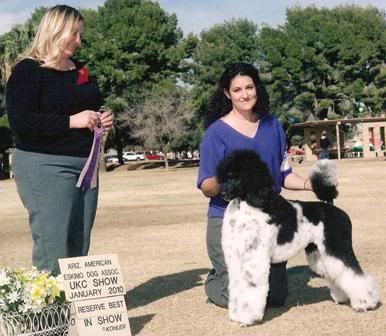Training dogs 100% motivationally requires a few things.
1. Patience. If the dog isn't doing what you want, you have to be patient.
2. Thought. You have to actually think about how to approach training with the dog, rather than just forcing the dog into the position or behavior you want.
3. Patience.
4. Understanding. Some people don't "get it." That's just the way it is, not everyone is cut out to be a dog trainer. It's the reason why people are so astounded when they go to a dog trainer that has their dog doing everything they want in 10 seconds while the dogs owners have been fumbling around for months to try and get the dog to do those things.
5. Patience.
That said, IMO there are 2 kinds of purely-motivational trainers. All trainers are not equal because of the methods they employ. There are those that have a well rounded understanding of what is involved in dog training, the individual dogs temperaments and experience to back up the dogs training. They're not soft, sissy or anything like that, it's not that they are incapable of training compulsion, it is that they put more thought behind the way to solve a problem with a dog. The dogs are weened off their rewards correctly, the rewards are used correctly to begin with, and the overall results are excellent.
Then there are the know-it-all pansy ass trainers that think it's abusive to use a prong collar. They feel like they are taking some kind of a Moral High Ground. However, when they run into a brick wall they are faced with a dog that doesn't respond to their cookie cutter no-thought methods, leaving the owners standing there with a dog that "can't be fixed" because nobody wanted to beat some sense into the dog with more than a cookie.
Most people I've trained with use a combination of motivational and compulsion. Some of them do both at the same time from Day 1 and skip the entire motivational-learning-phase altogether and jump straight into a black and white "do it because I said so, if you don't you get corrected, if you do you are rewarded" style of training.
The biggest difference I see between the trainers I've spent time with, besides the fact that most of them do it "the way they were taught," is the amount of patience and tolerance a trainer has for the dog to make a mistake and learn the exercise. The second biggest difference I see, is the way the trainer approaches the training.
Most people approach training with the thought of "How can I get this dog to do what I want him to do." IMO the better approach would be "How can I make this dog believe that he wants to do what I want him to do." But this requires thinking from the dogs perspective, not the handlers perspective, and many people truly have difficulty with this. People in general tend to over-complicate things. A dog breaks life down into the absolute simplest form of logic there is, but people tend to think about consequences, ways to work around an issue, ways to manipulate a situation etc, then mistakenly apply this same logic to a dogs thought process.
This is also why stereotypical pet owners say stuff like "he knows he did something wrong," or "he did that out of spite because he's mad that I did <insert something they did 6 months ago that the dog totally forgot about already>" etc.
I don't see there being a right or wrong, just a personal preference. I use motivational methods wherever I can, and I would like to bring that into bitework-control too if I could find someone (a decoy) that was willing to work with me on that. But I also don't treat my dogs like prissy lil foofoo dogs, and I doubt Bob Scott does either

 Previous Topic
Previous Topic Index
Index Next Topic
Next Topic














 Top
Top






.jpg)